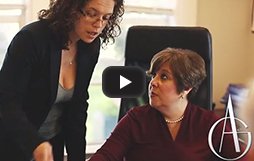Top 5 Bankruptcy Myths Dispelled
Deciding to file for bankruptcy is a huge decision. It will impact your life for years and can cause a lot of stress. But if your head is spinning with questions about how to file and what will happen if you do, then take comfort. You are not alone. CNN Money estimates that 72 percent of Americans were stressed about money in December of last year.
If you are facing a bankruptcy, your first step should be contacting an experienced lawyer who can guide you through the process and help you decipher between real concerns and unnecessary fears. To illustrate, here are just five of the biggest bankruptcy myths plaguing consumers today.
- You have to give up everything you own.
It is very unlikely you will lose everything you own. Depending on the type of bankruptcy you choose, however, you may have to give up some assets. Each state has a published list of property exemptions. These are the things you are allowed to keep. In other words, you are not expected to give up every possession. The law strikes a balance. An lawyer can evaluate your assets to help you decide what type of bankruptcy best suits your situation.
- Your credit will be destroyed forever.
Bankruptcy will hurt your credit. It will stay on your credit report for up to 10 years. Shockingly, however, some people improve their credit faster by filing bankruptcy. Most people who are facing a bankruptcy already have poor credit caused by late payments, judgments, and collections. By continuing to make partial payments and juggle debts, they simply continue the cycle, never getting ahead. By filing for bankruptcy, they put a stop to the cycle and start over again on the path to financial recovery. In this way, bankruptcy can be a great way to improve credit, but it takes work and is not a quick fix.
- Bankruptcy just stops collection agencies; original creditors can still call you.
This myth seems to be related to provisions of the Fair Debt Collection Practices Act, which applies to debt collectors. That law defines rules and procedures that debt collectors must follow in order to legally collect a debt. Many of the provisions do not apply to original creditors; however, this has absolutely nothing to do with bankruptcy. When you file for protection under the Bankruptcy Code, the court puts an automatic stay on collection activities, meaning your creditors may no longer attempt to collect while your case is pending.
- You will have to sell your home.
If you file under Chapter 7, your state’s homestead exemption will determine whether you can keep your home or not. In Chapter 13, you get to keep the property, but you must repay under a structured plan that is approved by the court. This can make payment much more manageable and ensure that you can keep your home. Because of the options available, selling off your primary residence is not usually necessary in a typical bankruptcy case.
- You won’t be able to buy a house or a car for 10 years.
Many consumers have been able to buy homes and cars following their bankruptcies. Although the bankruptcy remains on your credit report for 10 years, the effect of the bankruptcy becomes less severe as time passes. The Federal Housing Administration (FHA) even explains that a borrower can receive an FHA-backed mortgage as early as two years after a Chapter 7 bankruptcy.
Find Peace of Mind Today
If you are facing financial difficulties, do not let fear of the unknown get the best of you. Contact Orlando bankruptcy lawyer Amy E. Goodblatt, who can help you decide if bankruptcy is right for you and offer practical solutions to help you get the clean slate you deserve.






